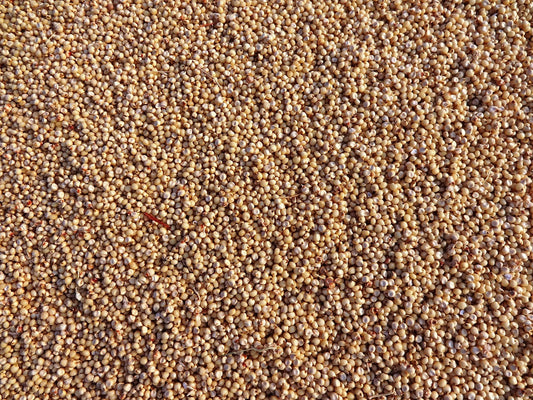Recognized for its potent antibacterial properties, Manuka honey presents a range of benefits, including wound healing, cough relief, ulcer protection, enhanced digestion, and improved oral health.
Originating from New Zealand, Manuka honey is derived from bees pollinating the Leptospermum scoparium (L. scoparium) flower, commonly known as the Manuka bush.
Manuka honey stands out due to its unique antibacterial traits, primarily attributed to methylglyoxal, an active ingredient believed to drive its antibacterial effects. Additionally, this honey variant offers antiviral, anti-inflammatory, and antioxidant properties.
Traditionally, Manuka honey has been employed for wound healing, alleviating sore throats, preventing tooth decay, and managing digestive problems.
Here are seven health benefits of Manuka honey backed by scientific research:

1. Wound Healing:
Manuka honey's antibacterial and antioxidant characteristics create a moist wound environment, acting as a protective barrier that helps prevent microbial infections. Studies demonstrate its effectiveness in enhancing wound healing, tissue regeneration, and pain reduction, particularly in burn cases and diabetic ulcers. Notably, it exhibits potential in treating infections from antibiotic-resistant strains like methicillin-resistant Staphylococcus aureus (MRSA).
2. Oral Health:
Research highlights Manuka honey's ability to combat harmful oral bacteria associated with plaque formation, gum inflammation, and tooth decay. Its high antibacterial activity inhibits the growth of detrimental oral bacteria like Porphyromonas gingivalis (P. gingivalis) and Aggregatibacter actinomycetemcomitans (A. actinomycetemcomitans).
3. Cough Relief:
Studies suggest Manuka honey's effectiveness in alleviating coughs related to upper respiratory tract infections (URTIs), often surpassing common cough medications in reducing cough frequency and severity.
4. Gastric Ulcer Treatment:
Manuka honey's potent antibacterial effects show promise in managing gastric ulcers caused by Helicobacter pylori (H. pylori) infections. Regular consumption appears to lower the risk of H. pylori infection and associated strains that contribute to peptic ulcers and gastric cancer.
5. Inflammatory Bowel Disease (IBD):
Animal studies suggest that regular intake of Manuka honey might aid in controlling the bacteria Clostridioides difficile (C. diff), known to cause severe diarrhoea and bowel inflammation in IBDs like ulcerative colitis and Crohn's disease.
6. Cystic Fibrosis Support:
Test-tube studies demonstrate Manuka honey's ability to hinder harmful bacteria like Pseudomonas aeruginosa (P. aeruginosa) and Burkholderia cepacia complex (B. cepacia), which frequently cause upper respiratory infections in individuals with cystic fibrosis.
7. Acne Treatment:
Although research on its effectiveness in treating acne is limited, the antimicrobial and anti-inflammatory properties of Manuka honey suggest its potential as a natural remedy for acne.

While generally safe for most individuals over one year old, those with diabetes, allergies to honey or bees, and infants should consult healthcare providers before using Manuka honey. Despite its promising benefits, further human-based research is necessary to comprehensively understand and validate its therapeutic properties. You can buy pure Australian Manuka Honey on the Calico store.




